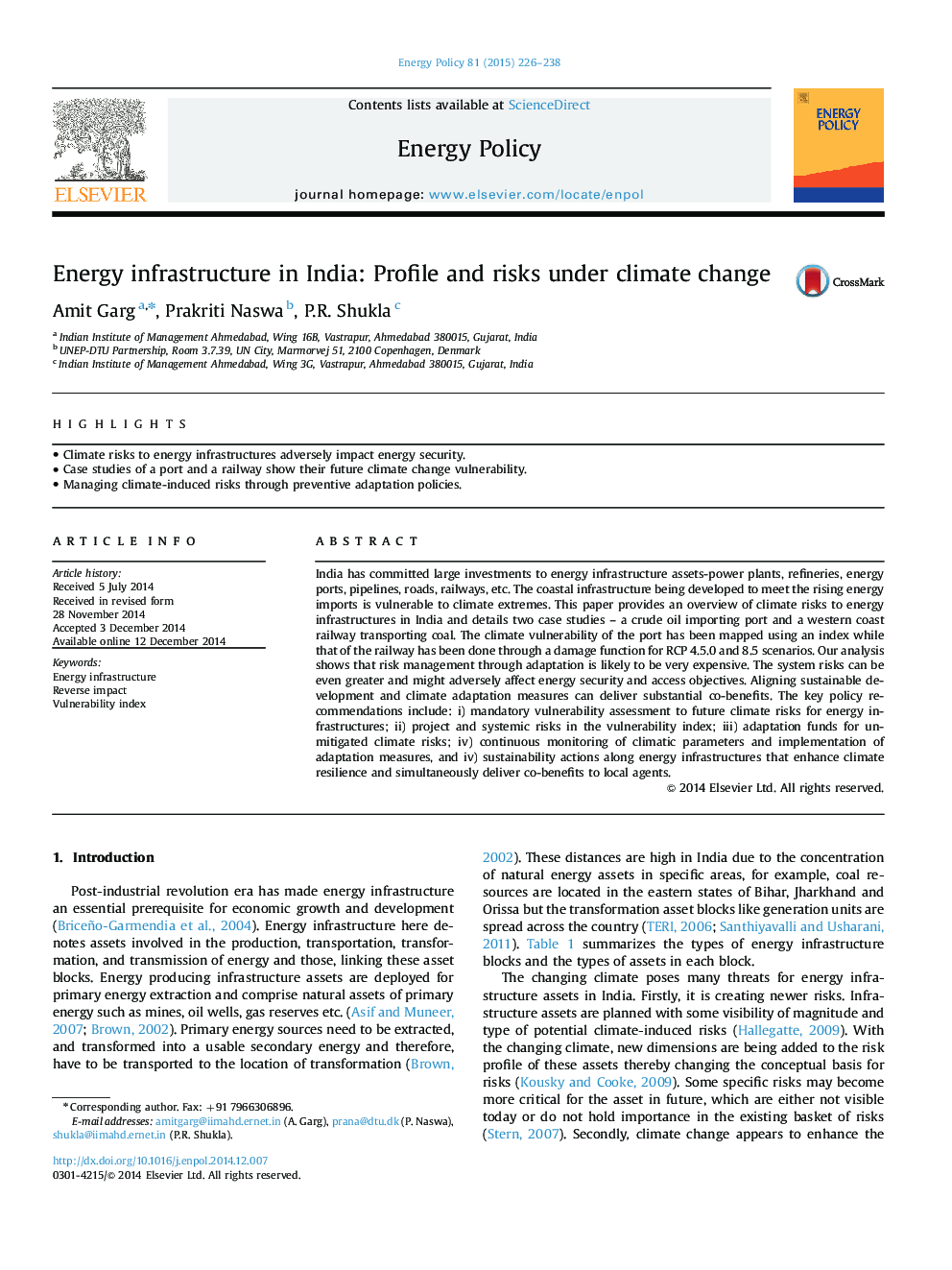| Article ID | Journal | Published Year | Pages | File Type |
|---|---|---|---|---|
| 992840 | Energy Policy | 2015 | 13 Pages |
•Climate risks to energy infrastructures adversely impact energy security.•Case studies of a port and a railway show their future climate change vulnerability.•Managing climate-induced risks through preventive adaptation policies.
India has committed large investments to energy infrastructure assets-power plants, refineries, energy ports, pipelines, roads, railways, etc. The coastal infrastructure being developed to meet the rising energy imports is vulnerable to climate extremes. This paper provides an overview of climate risks to energy infrastructures in India and details two case studies – a crude oil importing port and a western coast railway transporting coal. The climate vulnerability of the port has been mapped using an index while that of the railway has been done through a damage function for RCP 4.5.0 and 8.5 scenarios. Our analysis shows that risk management through adaptation is likely to be very expensive. The system risks can be even greater and might adversely affect energy security and access objectives. Aligning sustainable development and climate adaptation measures can deliver substantial co-benefits. The key policy recommendations include: i) mandatory vulnerability assessment to future climate risks for energy infrastructures; ii) project and systemic risks in the vulnerability index; iii) adaptation funds for unmitigated climate risks; iv) continuous monitoring of climatic parameters and implementation of adaptation measures, and iv) sustainability actions along energy infrastructures that enhance climate resilience and simultaneously deliver co-benefits to local agents.
